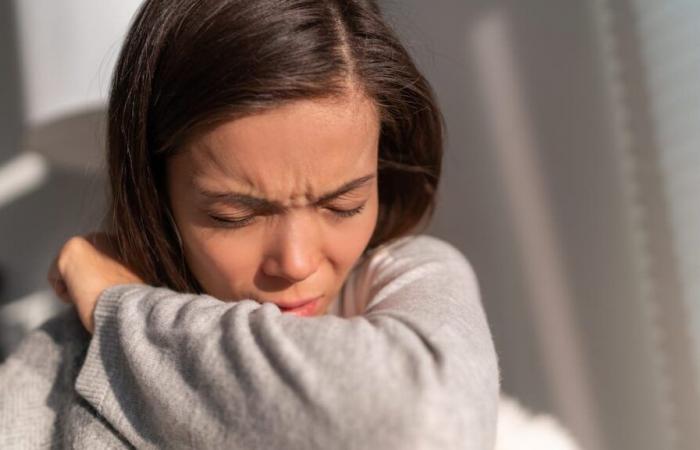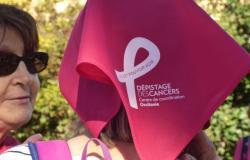If you feel like everyone around you is sick since the start of the school year, you’re not wrong. How do you know if it’s COVID-19? If you have symptoms, should you isolate yourself? Here’s a quick update.
• Also read: Free HPV vaccine for youth 20 and under: Here’s why it’s great news
“Right now, there is really one respiratory virus that is prevalent and that is SARS-CoV-2. [COVID-19]. Far behind, in second place, is the VRS. [virus respiratoire syncytial]”, explains the physician and microbiologist at the McGill University Health Centre (MUHC), Dr.r Donald Vinh.
According to data from the Institut national de santé publique du Québec (INSPQ), for the week of September 15 to 21, the positivity rate for COVID-19 was 23.48%, with 3,758 positive tests for 16,007 tests received.
Such a positivity rate indicates that the virus is circulating a lot.
The Dr Vinh says that about 95% of patients who come to see him for a respiratory virus have COVID-19.
How to differentiate COVID-19 from other viruses?
“It is clinically impossible to distinguish between a person who has a complex of symptoms similar to flu, COVID or RSV,” says the microbiologist.
The only way to know is to get tested, he adds.
Here are the main symptoms of COVID-19, flu and RSV:
- Nasal congestion or runny nose
- Sore throat
- Cough
- Fatigue
- Fever
- Shortness of breath
- Energy drop
COVID-19, more dangerous than other viruses?
COVID-19 is not just a flu, insists Dr.r Vinh.
“We all agree that it’s not like the first waves of the pandemic, where people died quickly. But that doesn’t mean the virus has become benign,” he says.
He points out that some people are still at risk of developing complications from COVID-19, such as blood clots or stroke.
If we are sick, do we have to isolate ourselves?
In the best of all possible worlds, when you have symptoms of COVID-19 or another virus, you would stay home to limit the spread.
If we have no choice but to go to the office or school, we should wear an N95 mask, wash our hands regularly and distance ourselves from others.
“This is not the time to go chatting at the coffee machine,” says D.r Donald Vinh: We need common sense!
And just because a COVID-19 test you bought at the pharmacy is negative doesn’t mean you haven’t contracted it. “No matter what the test says, it’s probably COVID-19 that’s affecting you,” the microbiologist insists.






